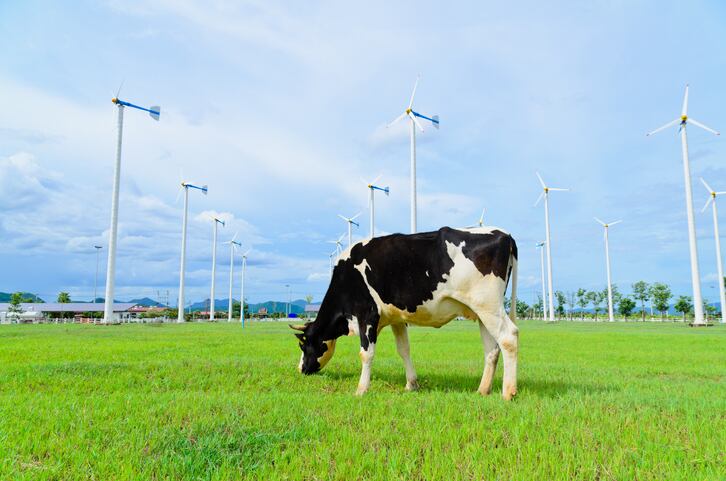The 75-year-old company based in Minnesota admitted that it is “early in [its] sustainability journey,” but is eager to improve its production processes. Milk Specialties is known for manufacturing whey protein isolate, other dairy proteins and animal nutritional supplements.
The company is focusing on a reduction in CO2 emissions, water recycling and increased energy efficiency to better protect the people, animals, and land that sustain them.
David Lenzmeier, CEO of Milk Specialties, said, “Taking action and making a difference begins with strong partnerships at the heart of our business. Advancing on our path toward sustainability calls us to support family farmers who are careful custodians of their land and provide care to their livestock. It leads us to cheese suppliers who strive to meet consumer expectations while helping us increase the transparency of our ingredients.”
Milk Specialties shared that since 2014, it has reduced its CO2 emissions by 7,800 tons annually through efforts like reducing its total truck-miles traveled. It also has decreased energy intensity by 21% and saved 110 million gallons of wastewater each year.
“We are early in our sustainability journey. True to our Midwestern values, we believe in always doing the right thing and are proud of the actions we have already taken to reduce both our dependency on natural resources and our carbon footprint,” Lenzmeier said.
“But we also recognize that our planet is changing, and as a global business leader it’s our responsibility to rise to the occasion with continued, concerted action.”
Milk Specialties operates 10 facilities and a global employee base totaling more than 900, working with more than 70 local cheese makers and hundreds of dairy farmers. The company said it believes the future belongs to innovators focused on responsible, resource-efficient operations that lessen the environmental impact.
Over the next five years, Milk Specialties is prioritizing the positioning of dairy protein processing facilities close to where the raw material is produced. Keeping dairy products fresh in transit will reduce the mileage transport for trucks.
The report said that since a starting point in 2013, the company has already cut its freight-related annual CO2 emissions by 110 metric tons thanks to fewer total truck-miles traveled.
“In pursuit of leaner operations, starting in 2013 we optimized the hauling capacity of our short- and long-run routes to maximize the potential of every load on the road. We can now pack approximately 56 million pounds of additional whey annually into our trucks, decreasing the number of transport vehicles we need out on the road,” Milk Specialties said.
It is also examining its international shipping methods, as all Milk Specialties products are manufactured in the US. Shifting to intermodal transport and fuel-efficient rail has already decreased its shipping-related CO2 emissions by 73% per year since 2015.
It plans to ramp up its water efforts, in which recovered water is used in boilers and for cleaning. Milk Specialties is pledging that environmental impacts will now become a standard measure of performance when evaluating manufacturing improvements and capital investments.
“In 2010, we piloted an infrastructure project at our Fond du Lac, Wisc. facility to determine what resource-savings we could gain from improved membrane filtration,” Milk Specialties said.
“The new, highly specialized equipment allowed us to recover the condensate from evaporated dairy products and perform microfiltration (reverse osmosis and polishing) on by-product wastewater at a whole new level.”
Starting this year, Milk Specialities will participate in the Dairy Sustainability Alliance, “with a commitment to embody the organization’s support for socially responsible, economically viable, and environmentally sound dairy-food systems.”
"With growth also comes insight: about our processes, our workplace culture, our impact in the world. To accelerate change at Milk Specialties, we are rapidly adopting these insights and pressing on," Lenzmeier said.

